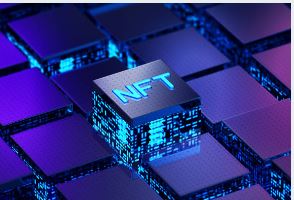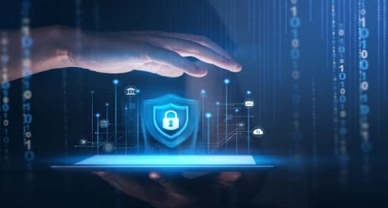Protection of Nonfungible Tokens in Indonesia
Introduction
Non-fungible tokens (“NFTs”) continue to be popular. NFT creation, investment, sale, and ownership interest exists in Indonesia and elsewhere in the world. A digital asset that is held on a blockchain, such as music, art, in-game items, or films, is referred to as an NFT.
Despite the demand in this novel asset class, Indonesia’s regulatory framework for NFTs is unclear. As of this writing, there is no explicit regulation governing the NFT market or the way NFTs should be produced, acquired, gathered, coined, etc.

The nation’s legal framework appears to desire to include the special non-fungible traits of NFTs, and this tendency will only continue to advance quickly. The Indonesian government has examined the existence of blockchain technology cautiously, leaning more toward acceptance of the new technology than outright prohibition. The approach now used for cryptocurrency and blockchain in general shows this. It will be fascinating to observe whether NFTs will be governed more strictly or managed cautiously.
The current rules and regulations acknowledge the use of blockchain technology. Most significantly, “the development of blockchain technology” has been accepted as a legal business activity by the Indonesian standard industrial business categorization code, which was published in 2020. Blockchain technology is also acknowledged for its use in the delivery of auxiliary services for finance loans for peer-to-peer businesses.
Despite the lack of regulatory clarity, there are several NFT platforms operating in Indonesia, such as TokoMall, owned by Tokocrypto, and other platforms that are still under development. While NFT platforms are not yet specifically regulated, they are subject to the provisions on Electronic System Providers (“ESPs”) contained in several regulations, as follows:
• Law No. 11 of 2008, dated April 21, 2008, regarding Electronic Information and Transactions, as amended by Law No 19 of 2016, dated November 25, 2016.• Government Regulation No. 71 of 2019, dated October 10, 2019, regarding the Provision of Electronic Systems and Transactions.
• Minister of Communication and Informatics Regulation No. 20 of 2016, dated December 1, 2016, regarding the Protection of Personal Data in Electronic Systems.
• MOCI Regulation No. 5 of 2020, dated November 16, 2020, regarding ESP in the Private Sector, as amended by MOCI Regulation No. 10 of 2021, dated May 21, 2021.
Business actors who want to build and run an NFT platform must adhere to the standards for ESPs outlined in the legislation. Their commercial endeavors will come under Indonesia Standard Industrial Classification No. 63122, which covers websites and other digital platforms. The most recent version of the KBLI, which was released in 2020, organises Indonesian economic activities by industry. These classifications are then used, among other things, to establish what business licensing is necessary for a given industry.
Under the Indonesian regulatory regime, ESPs are subject to various requirements and obligations related to, among other things, the
i. cross-border transfer of personal data.
ii. storage of electronic data overseas.
iii. general personal data processing and the consent of personal data owners.
iv. electronic data deletion.
v. encryption and data storage.
vi. data retention.
vii. privacy policy; and
viii. registration requirements.
Intellectual property rights are a key consideration when it comes to NFTs because they contain art, music, videos, pictures, and other creations. Provisions of intellectual property law will be applicable to NFTs.
Additionally, pursuant to Article 25 of the ITE Law, electronic information and electronic documents formed into an intellectual work, internet site or intellectual work contained therein are protected by intellectual property rights. Certain types of intellectual property rights must be considered in relation to the NFTs:
1. Patent: Blockchain-related inventions can be protected as patents. Article 19(1) of the Patent Law stipulates that patent holders have the exclusive right to exploit their patents and to prohibit other parties, without their consent, from: a) making, using, selling, importing, renting, handing out, or providing for sale or rent the patented product; b) using the manufacturing process protected by the patent to manufacture goods or other activities stipulated in (a) above.
Article 143 of the Patent Law provides patent holders recourse to file claims in the Commercial Court if the rights under their patent are infringed by another party.
2. Trademark: NFTs may also be protected as a trademark. Article 1(1) of Indonesia’s Trademark Law defines trademark. It is a sign that may be displayed graphically in the form of a device, logo, name, word, letter, number, color arrangement, in two dimensions and/or three dimensions, sounds, hologram, or a combination of two or more of these elements to distinguish goods and/or services that are produced by individuals or legal entities in the trading of goods and/or services. Article 83(1) of the Trademark Law provides the grounds for the owner of a registered trademark and/or the licensee of a registered trademark owner to file a claim against any third party that unlawfully uses a mark that is similar in principle or in its entirety with similar goods and/or services. They may file a claim for damages and/or for the cessation of all conduct relating to the use of said mark.
3. Copyright: NFTs are closely related to artworks that are the subject to copyright and related rights protection. Article 9(3) of the Copyright Law stipulates that any party without prior authorization from the copyright holder is prohibited to copy and/or commercially use copyrighted works. Article 10 of the Copyright Law provides that anyone who manages business premises, including online platforms, is prohibited from allowing the sale or reproduction of goods resulting from copyright and/or related rights infringements in the business premises under their management.
Conclusion
People continue to buy, sell, trade, and invest in NFTs despite the lack of clarity around their regulation in Indonesia. In order to give clarity for the NFT business and everyone involved in the production, sale, and purchase, minting, etc. of NFTs in Indonesia, we would thus anticipate the Government of Indonesia issuing explicit legislation on NFTs. Tax is imposed on digital commodities in addition to the registration requirements for electronic systems. For the past few years, significant tech companies that meet a specific threshold have been subject to tax duties, and this has been completely implemented among them. More tech companies have such requirements imposed in the following months. Whether NFT trading will comply with the above-mentioned requirements remains to be seen – while non-compliance to the relevant Indonesian regulations may lead to temporary suspension and/or access blocking.
Author: Tanya Saraswat, in case of any queries please contact/write back to us at support@ipandlegalfilings.com or IP & Legal Filing.


